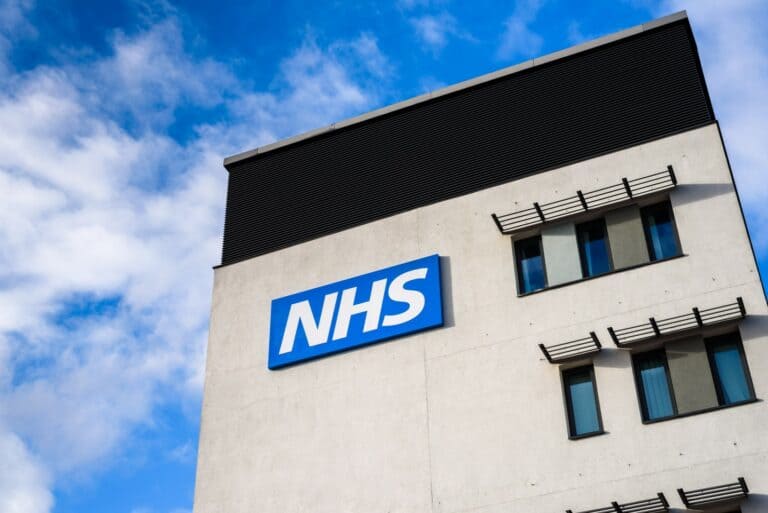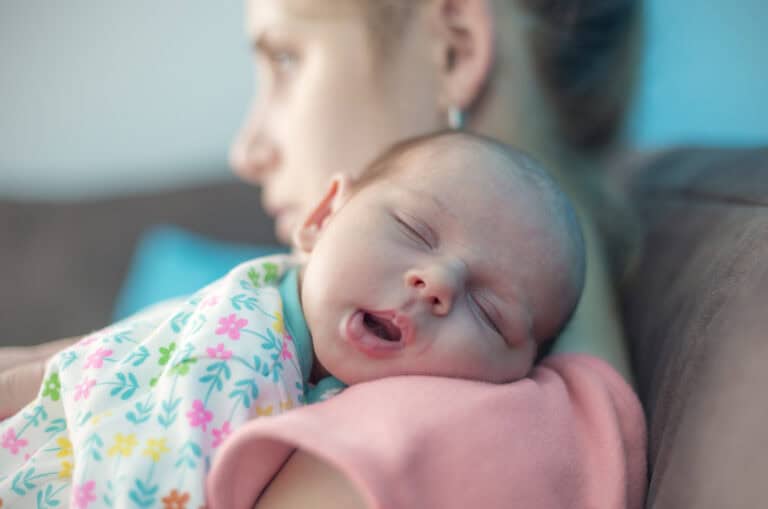‘New’ 15-minute brain scans: quicker answers and treatment for newborns
Having children can be one of the most joyous experiences in life, though, like with all things, it comes with its challenges. Childbirth itself has many complications and, sadly, there are occasions where things can go wrong.
A ‘new’ 15 minute brain scan claims to be able to diagnose brain damage in babies up to two years earlier than current methods. This will provide parents with more certainty over their child’s outcome and may allow a child to access vital treatment and support sooner.
I am a solicitor in the Child Brain Injury team at Bolt Burdon Kemp. My team helps to claim compensation for children who have sustained a brain injury as a result of an accident or medical negligence. Many of our cases involve brain damage in a newborn where medical errors have occurred during their mother’s pregnancy, labour or birth. Any technology which allows parents to obtain more information at an earlier juncture is to be encouraged – I think this could have really helped many of the families I work with.
Brain damage in newborns
A baby might suffer brain damage whilst in the womb, during their birth or after they are born. It affects around 1 in 300 newborns in the UK and is usually caused by oxygen deprivation. [1]For this reason, medical staff must carefully monitor the mother and baby during the pregnancy and during labour, to ensure that both the mother and baby are healthy.
When to worry about fetal hiccups
Another factor that could indicate a condition that could cause brain damage in newborns is fetal hiccups. Fetal hiccups are little movements your baby makes to practice breathing. They’ll feel like a soft kick or twitching that mirrors the rhythms of adult hiccups. While they’re normally a sign of good development, there are specific instances where it may be cause for concern. If fetal hiccups are persistent and frequent (more than 4 times a day) in later pregnancy (week 28 onwards), it could indicate a problem with the umbilical cord such as compression or prolapse so you may want to get it checked by a doctor. Among other issues, umbilical cord compression can lead to brain damage, particularly if it’s not treated quickly. Find out more about umbilical cord compression in our article on the subject.
How are babies currently checked?
Any baby suspected of having some type of brain damage is given an MRI scan shortly after birth. This will usually be within the baby’s first two weeks of life. Doctors then use this information to inform the parents of the likely extent of the damage and the possible long term disabilities their child may face. [1]
This current method is said to be only between 60 and 85% accurate[2] and relies heavily on the doctor’s individual judgement of the MRI images.
In many cases, there may be a two year wait before the extent and nature of a child’s brain damage can be confirmed. The damage to the brain may only be clearly visible on an MRI scan once the child is slightly older, as their brain develops. The precise nature of this damage may not be determinable by health professionals until a child reaches the age of two, when they can measure their progress against developmental goals, such as walking and talking.
By the age of two, a child might be in nursery and parents will be able to see how their child’s development compares with their peers’, which would not have been readily ascertainable when they were younger. This can of course be very difficult for parents, particularly if they have not known how serious their child’s injuries were. It is much harder to see a clear difference between well and unwell babies because they are still at a very early stage in their development.
This two year wait understandably causes a lot of uncertainty and anxiety for parents.
How do MRI scans currently work?
Current MRI scans can take between 15 and 90 minutes.[3]
Most children undergoing a MRI scan either need to be sedated or nursed to sleep using the ‘feed and wrap’ method. This is to prevent them moving which would cause the images of their brain to be unclear.
The ‘feed and wrap’ method involves starving the baby of food or formula milk for six hours before the scan or three hours before the scan if they are still breast fed. Just before the scan, the baby will be fed and wrapped in a blanket to settle them to sleep. [3]
The child undergoing the scan may also need to take medicine to help make the images clearer. The radiographer will explain to the parents what medicine needs to be given and the possible side effects.
Once the child is asleep, they are placed on the MRI bed and the radiographer will move the bed inside the scanner. Ear protectors are put on the child to minimise any discomfort or disturbance to them.
What are the ‘new’ scans and how do they work?
The new scans, trialled by Imperial College London, are called magnetic resonance spectroscopies. They are said to involve all the same technology, equipment and testing that is currently available and used. It will simply require the baby to remain in the MRI scanner for 15 minutes longer than at present. [1]
The scans will not carry any additional cost to the NHS as normal MRI scanning equipment can be used. [1]
The part of the brain that is scanned using this new method is the thalamus. This is located in the centre of the brain, just above the brain stem. It controls our movement and our senses [4]. It is usually the area which is most damaged by oxygen deprivation. [1]
The scan will be able to detect what level of damage has been caused to this part of the brain by measuring the health of the brain cells in the thalamus.
The scan data can be easily analysed using special software by any radiographer. [1] This suggests that the results will be less reliant on an individual doctor’s opinion and that they will therefore be more accurate.
Indeed, the 200 trials conducted in the UK and USA had an amazing 98% accuracy rate in predicting the level of brain damage in newborns, which is a vast improvement on the 65-85% accuracy rate of the current scans used.
What happens if my child has brain damage?
If a baby is suspected to have brain damage, they should receive cooling therapy immediately after birth. This is now a routine treatment for newborns with suspected brain damage, and involves placing a baby on a special mat that reduces their body temperature by four degrees. Evidence has shown that cooling the body can help reduce the extent of brain damage and reduce the risk of long term physical disabilities.
You can find out more about cooling therapy in this blog written by my colleague Claudia Hillemand.
A baby diagnosed with brain damage should remain under the care of a specialist paediatric team based in a local or specialist hospital as an outpatient.
How will the new scans help?
By diagnosing a child’s brain injury sooner, appropriate treatment can be provided sooner. In addition to cooling treatment, a baby or young child may require therapies from an early age, such as physiotherapy. They may need to be monitored more closely if they are at a higher risk of illness, such as epilepsy.
Health professionals will also be able to advise parents on their child’s likely long term disabilities with a higher degree of accuracy. This will enable parents to plan for the future, to educate themselves on their child’s likely needs and to get the right care and resources in place to support their child’s long term development. For example, parents may wish to start thinking about the sort of school their child may need to attend.
Parents may also wish to obtain legal advice. There are likely to be a number of unanswered questions as to how their child was injured. If a child’s injuries have potentially been caused by a medical error, a solicitor will be able to begin investigating this further on behalf of the child. If it appears that the health professionals were at fault for the injuries in some way, then this could lead to the child being paid compensation, which can be used to pay for their treatment, therapy and accommodation needs, amongst other things. The sooner a solicitor is involved, the sooner this is likely to happen.
When will the new scans be available?
It is said that most NHS hospitals already have the facilities and software to perform the new scan and that there will be no additional cost to the NHS as the equipment and technology is already available. It is now just a case of increasing awareness and training. [1]
As with all treatment methods, it is likely to take some time before this is fully rolled out for patients. There will need to be a change of protocols so that not only is there awareness around using the new scans, but also so that doctors are actively encouraged to help families find answers sooner.
Although there may be a wait for this new method to be widely used, it will be reassuring for parents and prospective parents to know that treatment for newborns is developing. With the earlier diagnosis of brain damage in newborns, one can hope that treatments and therapies will also be developed to improve a baby’s long term outcome.
How we can help
In the Child Brain Injury Department we act exclusively for children who have suffered brain injuries. Our team has vast experience of acting for children who have been injured at birth.
We strive to seek compensation for children who have suffered avoidable brain injuries arising from medical negligence to meet amongst other things, their treatment, care, housing and therapy needs.
Footnotes
[1] https://www.imperial.ac.uk/news/189047/15-minute-scan-could-help-diagnose-brain/
[2] https://www.telegraph.co.uk/science/2018/11/14/15-minute-scan-diagnose-brain-damage-newborns/
[3] http://dudleygroup.nhs.uk/wp-content/uploads/2015/03/Your-baby-is-having-an-MRI-scan-V1.pdf
[4] https://www.news-medical.net/health/What-is-the-Thalamus.aspx










